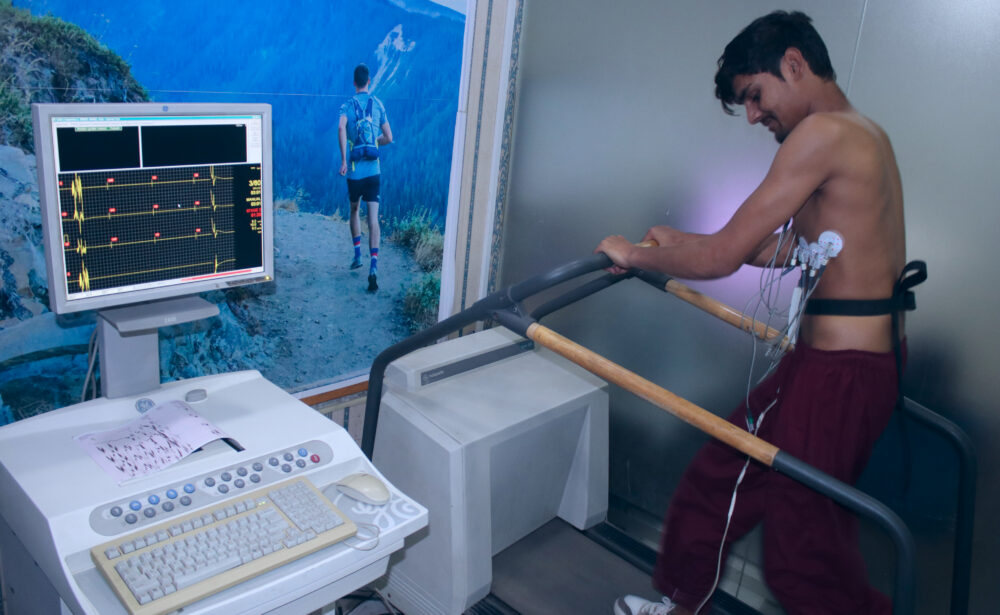Exercise Tolerance Test (ETT) – Stress Test for Heart Health at CDC
An Exercise Tolerance Test (ETT), also known as a Stress Test, evaluates how your heart responds to physical activity.
It helps diagnose coronary artery disease, heart rhythm problems, and exercise-induced symptoms.
At CDC, we perform ETT using a treadmill or stationary bike while monitoring your heart function.
The test measures heart rate, blood pressure, and ECG changes during exercise. ETT helps assess heart function, fitness levels, and blood flow under stress conditions. It is crucial for patients with chest pain, dizziness, or shortness of breath. Regular stress tests help in preventing heart attacks and guiding treatment plans. Choose CDC for expert-led Exercise Tolerance Testing with accurate heart monitoring.
Measures Heart Function Under Stress
Essential for Diagnosing Coronary Artery Disease
Helps in Heart Attack & Stroke Prevention
Benefits of ETT Research
ETT research helps in early detection of heart conditions. It plays a vital role in evaluating exercise capacity and recovery time. Assists in monitoring the effects of heart medications. Supports stroke and heart attack prevention.
- Essential for Coronary Heart Disease Diagnosis
- Helps Assess Exercise-Induced Heart Issues
- Guides Treatment & Lifestyle Adjustments
- Non-Invasive & Safe for Most Patients
Frequently Asked Questions (FAQs)
It evaluates how well your heart functions during exercise.
It typically lasts 30-45 minutes.
No, but you may feel mild exhaustion similar to a workout.
Wear comfortable clothing and sports shoes.
CDC provides expert-led testing with state-of-the-art monitoring.

